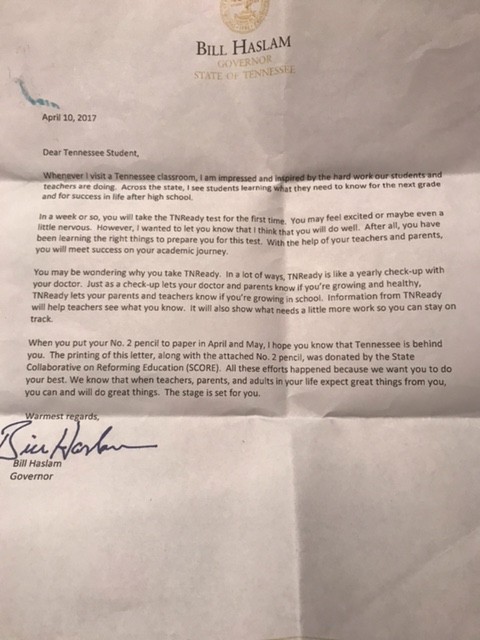Tennessee is now four years into a program targeted at struggling students known as Response to Intervention and Instruction, or RTI2. For the first time next year, districts may actually receive some funding for this state-mandated program. That’s right, for the first four years of the mandated program, there was no state funding. This left districts struggling to make the program work.
Of the new funding, Chalkbeat reports:
This year for the first time, Gov. Bill Haslam is asking for state funding to help districts with RTI2. His proposed budget includes $13.3 million that would pay for at least one interventionist per district, along with additional resources, trainings, and tools to strengthen the program.
Back in 2015, Grace Tatter of Chalkbeat reported on the challenges faced by districts attempting to meet the state mandate without any supporting dollars:
Districts have had to spend hundreds of thousands of dollars on assessments, and don’t have the money to hire educators with the expertise required to work with the highest needs students. Some schools are using their general education teachers, already stretched thin, and others are using computer programs.
Now, districts can rest easy. Entire districts will be able to use state dollars to hire exactly one RTI2 specialist. This may be great for tiny districts like Lexington City or Trousdale County, but not incredibly helpful in districts with more than two or three schools.
In fact, even as the program has moved into high schools, it’s been met with challenges:
RTI2 is now in place in all public K-12 schools statewide but launched just last school year in high schools — a rollout that has been especially challenging. The report notes that only half of those teachers say that the new program is helping students learn, compared to three-fourths of elementary school teachers. It also notes that — because the model depends heavily on collaboration among classroom teachers, interventionists, and special educators — struggles around scheduling and collaboration are heightened in high school.
“It still feels like we are trying to adapt an elementary-focused model to high school needs, and it is not working well,” according to one school psychologist.
One possible solution would be to embed funding for school-level RTI2 specialists in the state’s funding formula for schools, the BEP. In fact, Rep. Joe Pitts offered legislation that would do just that last year. His plan would have added funding for three RTI2 specialists at each school for a total projected cost of $167 million. Commissioner McQueen was quick to shoot that idea down and came back this year with the funding proposal of $13 million, or one specialist per district. That’s only $154 million short of adopting a plan that would actually meet the needs of a program many suggest is an important way to improve educational outcomes for Tennessee students.
Oh, and our state has the money. We’re on track to collect nearly $700 million in revenue above what we brought in last year. Plus, providing targeted funding for RTI2 would free up local dollars to boost teacher pay across the board or meet other district needs.
Instead, we’re left with a 1 > 0 scenario and told to be appreciative. Our Governor and Education Commissioner talk of the importance of helping our most vulnerable students, but their budget approach tells a different story.
For more on education politics and policy in Tennessee, follow @TNEdReport



